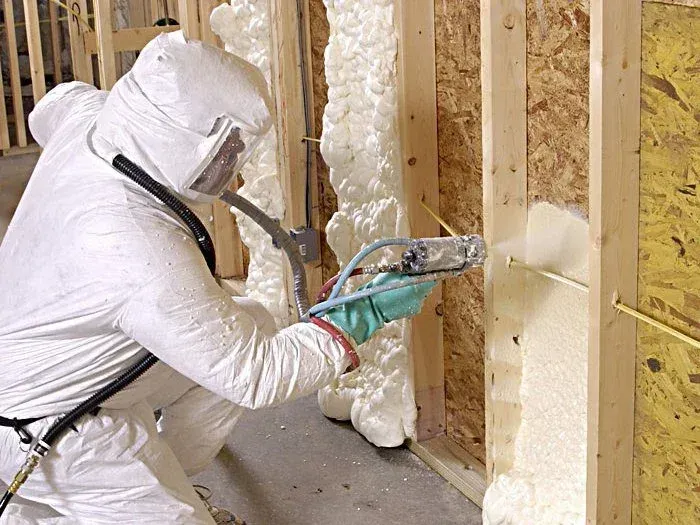Private Landlord Claims
We are here for you if you are a private tenant with housing disrepair
Take our free quiz to find out if you have a claim or book a call with our friendly Housing Disrepair Team
Yes, we do help Private Tenants
But we do understand that it's not an easy decision.
Are you are a private tenant living with housing disrepair?
Are you are scared you might not get your deposit back?
Are you frightened about asking for help in case your landlord evicts you?
Are you at breaking point and just can't take it anymore?
What you need to do
The first step is to contact us. We won't do anything or contact your landlord without your consent. We will discuss your options with you and if we can help we will, but a housing disrepair claim might not be the right option and we will advise you accordingly.
Get Started Today
STILL NOT SURE?
Frequently Asked Questions
We hope this information is useful, but please contact us if you have any other questions
Can my landlord evict me if I start a claim?
The short answer unfortunately is still yes. Whilst there are some changes to the law coming which means landlords will not be able to evict you if you're not at fault, those changes still have yet to come into force and landlords can and will still evict as a means of retalliation.
How much will it cost me to claim?
We help private tenants on the same basis as council and housing association tenants - no win no fee. This means you do not pay anything up front and only pay for our services when your claim is successful.
What can I claim for?
You can claim compensation for living in a property that is in disrepair, along with any damages for personal items that have been damaged and any injury to your health due to the disrepair.
How much compensation will I receive?
The main focus of a housing disrepair claim is to get your property repaired to the highest possible standards (not your landlord's standard). Compensation depends on the severity of the disrepair and how long you have been complaining about it. It varies on a case by case basis.
What do I need in order to make a claim?
You need to have informed your landlord of the disrepair and given them a reasonable amount of time to make those repairs. If they are ignoring you or refusing to repair then providing you still live in the property and can prove that you have notified the landlord then you can make a claim.
I am in arrears, does this make a difference?
Yes, it can make a difference to your claim. If you are not paying rent (even if you believe that withholding rent is fair due to the poor state of your property) you are in breach of your tenancy agreement and your landlord can evict you.

The Challenges of Spray Foam Insulation: What Homeowners Need to Know
Recent reports indicate that some homeowners are experiencing difficulties when trying to remortgage or sell properties that have spray foam insulation. While this method is popular for improving energy efficiency, improper installation can lead to condensation issues that may compromise a roof's structural integrity.
What is Spray Foam Insulation?
Spray foam insulation is a liquid insulation system applied with a spray gun that expands to fill available spaces, creating a solid layer of insulation. It is commonly used in roofs, lofts, and attics and comes in two main types:
Open Cell: This type remains soft after setting and is less prone to condensation. However, it offers lower insulation density compared to closed cell foam.
Closed Cell: This type becomes rigid once set and provides superior insulation. However, as a vapor barrier, it can reduce ventilation, potentially leading to issues in roof spaces.
Spray foam insulation was included in the UK government's Green Homes Grant scheme, which subsidized up to two-thirds of the costs for energy efficiency improvements. However, concerns about its long-term effects have surfaced.
Potential Problems with Spray Foam Insulation
While spray foam has been widely used for decades, recent issues related to timber-framed roofs have come to light. If not installed correctly, spray foam insulation can:
Reduce air circulation and ventilation in roof spaces.
Cause dampness and condensation on the underside of roofs, as it acts as an air barrier that traps moisture.
Put timber-framed roofs at risk of decay.
Removing spray foam insulation can be both challenging and expensive. For instance, estimates suggest that removing foam from the roof of a three-bedroom detached house can cost around £3,200.
The Royal Institution of Chartered Surveyors (RICS) has noted that poorly installed spray foam can negatively impact a property’s valuation. Additionally, the Home Owners Alliance (HOA) has highlighted that the foam can obscure roof structures, complicating inspections for mortgage lenders.
Industry Guidance
In November 2021, the Residential Property Surveyors Association (RPSA) and the Property Care Association (PCA) released guidance regarding spray foam insulation, which was later withdrawn for a comprehensive review. They have since collaborated with lenders, surveyors, and the spray foam industry to establish better inspection protocols and installation practices.
In March 2023, the PCA introduced a new inspection protocol designed to assist surveyors in evaluating spray foam risks in pitched roofs, allowing them to assess individual roofs rather than making blanket decisions based solely on the presence of foam.
Recommendations for Homeowners
Homeowners considering spray foam insulation are advised to proceed with caution. The HOA recommends avoiding its installation until more issues are resolved. If you're determined to proceed, consider hiring a member of the National Insulation Installers.
The RICS suggests obtaining independent expertise from a qualified professional who is separate from the installer and manufacturer to determine the suitability of spray foam for your property.
Government Response
In June 2022, the government indicated that it had no plans to intervene regarding property values or mortgage access affected by spray foam insulation installed through the Green Homes Grant. They emphasized that the responsibility lies with the installer and homeowner to decide on using spray foam. Consumers who believe they have been misled may seek recourse under the Consumer Protection from Unfair Trading Regulations 2008.
Steps for Affected Homeowners
Keep Documentation: It’s essential to retain all paperwork related to your installation, including independent test certificates. This information may assist surveyors during property evaluations.
Explore Mortgage Options: Some lenders may still offer mortgages for homes with spray foam insulation, provided certain criteria are met.
Consider Professional Removal: If issues arise, consult qualified professionals to discuss the removal of spray foam insulation, as DIY removal could cause further damage.
File a Complaint: If you believe you were misled during the installation process, review the terms of your contract and raise any concerns with your installer or the relevant oversight body.
Seek Legal Advice: If necessary, consult legal resources or organizations like Citizens Advice for guidance on consumer rights and potential redress.
In conclusion, while spray foam insulation can provide energy efficiency benefits, homeowners must be aware of the potential challenges and take proactive steps to protect their investments.
Did you know you can Rate your Landlord?
with Marks Out of Tenancy if you're
Looking for the best landlords and letting agents...
Join the thousands of renters rating and reviewing their landlord, letting agent and rental properties. Tell your story, share your experience, rate your landlord and letting agent.
Sparrowhawk Legal Ltd | Registered in England and Wales | Registered Company No: 14507943 | Registered office: 5th Floor 167-169 Great Portland Street, London, W1W 5PF | Tel 0204 581 9300
Sparrowhawk Legal Ltd is authorised and regulated by the Solicitors Regulation Authority No. 8004127
Sparrowhawk Legal is a trading name of Sparrowhawk Legal Ltd.
© Copyright 2024. Sparrowhawk Legal. All rights reserved.

